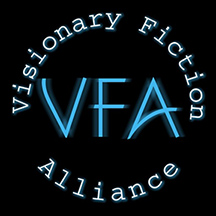The war against the individual is moving forward at full speed, and the creatives are next on the list of being targeted for having a mental deficit. As a creative, I see this as dangerous. Equating creative people as having any kind of deficit is the first step to inventing a new mental illness.
A study was conducted on creatives who were put through a series of tests. The creatives scored lower at identifying a large letter that was composed of smaller ones that were of a different letter. Creatives were deemed as having a deficit because there was no difference in the way both creatives and non-creatives shifted their focus from tree to forest level focus. The test doesn’t demonstrate any deficit. All it shows is that we’re all different in how we act and perceive things. Technically, the way I see it is that either letter answered would be correct as both are present. I can clearly now see why being a big picture thinker made it harder for me to take tests at school. I saw too many variables at getting to the answer. This is a major reason why outlining and plotting is so important to me as a writer. I’d be all over the place without them!
I hyper-focus, easily missing things that are happening around me when I’m writing, including a very loud hurricane alarm! This actually happened during the last tsunami warning when I lived in Oahu. I heard it in the back of my mind. I knew what it was, but I didn’t process the information. The next morning, I told my family about it, and I was concerned as to how shut off I was from the outside world. After some reflection, I concluded that on a sub-conscious level, I must’ve known we weren’t in any immediate danger as we lived in an area that was not in the evacuation zone. Not that I trust human calculations and planning when it comes to surviving a natural catastrophe, but that’s a whole other topic, so I’ll end my digression here.
Just how intense is my hyper-focus? My husband told me when I work, I remind him of his autistic friend. Interestingly, the article states something similar by mentioning ADHD and autism.
“The general idea is that [people with ADHD] are not able to focus on anything. But really there are two different parts of the disorder, and one is that if they really get interested in something, they become almost like autistic people: really focused, so much so that they are not able to practice anything else.”
I find it revealing that they’d mention ADHD and Autism in an article about creatives who supposedly have a mental deficit. The article also states that creatives achieve success by “stubbornly clinging to ideas.”
“The research may help explain why autistic people, who tend to focus obsessively, can often be highly creative. Paradoxically, it may also help explain the link between attention-deficit/hyperactivity disorder (ADHD) and creative success.” Maia Szalavitz (from the linked article)
Apparently having drive and focusing on something until you find success is now a stubborn trait and a mental deficit. If that’s the case, I say, stubborn is great—which I did happen to tell my daughters a while back. I told them that if you’re going to be stubborn, be stubborn where it counts. Be stubborn when it comes to your art and to your interests because that’s what it will take to produce your best work.
From Quirky to ADHD
Before I even clicked on the article, I had a strong suspicion that ADHD was going to be mentioned. There was a book I read that was first printed in the seventies, The Career Guide for Creative and Unconventional People. Most of the ADHD traits were listed in there:
“Again and Again, the findings from psychological and vocational studies indicate interests in art, music and literature are associated with more neurotic problems.” Carol Eikleberry
If you’d like to read the review I wrote for the book at Amazon way back in 2007, click here. Flash forward to 2013, and we find the article like the one I linked to above. What does all this say about ADHD? Personally, I don’t believe it’s a disease. I’m not here to start a war against those who think it’s real. That’s my personal opinion, and as a person that would’ve been drugged to the max had I grown up at this time, I can state it with authority. I just choose not to label myself as having a mental deficit as I don’t feel that I have one. I prefer to say I have an over-abundance of creative energy, and when I’m not spending it, I certainly exhibit neurotic characteristics. I was also diagnosed with borderline personality disorder in my teens, and that’s another label I ignore now.
ADHD Characters in My Writing
In my stories, I champion the ADHD personality-type. My protagonist in Jessie’s Song deals with his creative energy through music. In Six Pack, which will be released in 2015, my protagonist, finds her focus through bodybuilding. That particular book is semi-autobiographical, and I hope that it will inspire women to nurture their own quirkiness. I struggled to fit in most of my life, but now I appreciate my quirkiness. I told my landlord that when I was a child, I felt like a freak. As an adult, I’m glad to exist outside of the fringe of perceived normality.No. I’m not “normal,” and I say that with pride. We’re all different, and that’s something to celebrate.
Love and light,
Eleni





